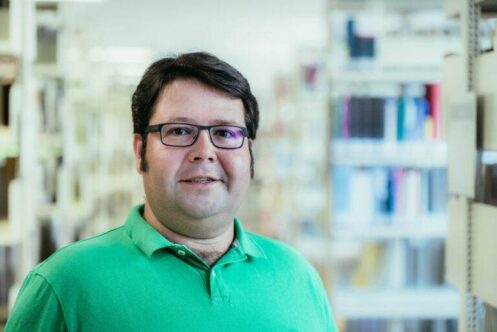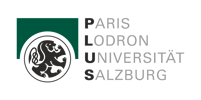Assoz. Prof. PD Mag Dr. Sascha Trültzsch-Wijnen
Deputy Head of Division Media Use and Digital Cultures
Chairman of the Curriculum Commission of the Department of Communication Studies
Head of Doctorate School PLUS “Popular Culture Studies

Room: mezzanine 011, Rudolfskai 42, 5020 Salzburg
Office hours: by appointment by e-mail (meeting, telephone or Webex possible).
Phone: +43-662-8044-4153
Mail: sascha.trueltzsch-wijnen@plus.ac.at
Sascha Trültzsch-Wijnen is an associate professor at the Department of Communication Studies at the University of Salzburg. He received his doctorate (2008) at Martin Luther University Halle-Wittenberg. After earning his venia docendi (Habilitation) at the University of Salzburg in 2017, he is teaching Media and Communication Studies.In his research and teaching he focuses on content as well as appropriation and use research and especially the combination of these perspectives is part of his academic work. Besides genre developments, media or television history issues, other areas of his expertise are preferred content and usage habits (including absence from technology) when dealing with social media and mobile devices.
His subject areas include social web use, privacy in everyday life and social media, media history (film and television), images of women and families in the media, media and sports, media and popular music as well as film and television analysis.
- Current: Kids Digital Lives in Covid-19 Times
- Media content, use and appropriation research
- AV analysis, media content analysis
- Popular culture and media, media and sport, media and memory
- Television series, television history and genre development
- Identity, public and private in the social web, smartphone and app use
- Head of Doctorate School Plus “Popular Culture Studies“
- „ “No Hate Speech Committee” Austria and Advisory Board “Safer Internet AT”“
- Coordinator Austria for EU Kids Online EU Kids Online
- Member of important scientific societies: IAMCR, ECREA (Institutional Coordinator), Broadcasting and History (2007-2018 on the Board) GfM, DGPuK, ÖGK.
- Reviews for numerous journals (e.g. JoCaM, ScOMS, Participations, MediaStudies, Medijske Studije (HR), also Medienjournal), conferences (e.g. ECREA, IAMCR, ICA) and research funding agencies (SNF, DFG), reviews for dissertations in Ö, D, CZ
The latest research documentation can be found here.
Notes on master’s exams at Assoz.Prof. PD Mag. Dr. Sascha Trültzsch-Wijnen – Applies to first and second examinations
Diese Informationen als PDF zum Download
Topics
You discuss the examination topic with the examiner: You should choose it according to your interests and focus. Use my subject areas as a guide. However, examination topics can be chosen from the whole range of the subject.
Media content, use and appropriation research (e.g. methods of reception research, also empirical studies on this, theories on appropriation research, lifeworld-related research, methods of media content analysis – multi-level perspective etc.).
AV analysis, media content analysis (e.g. methods of film and television analysis, thematic to empirical studies: image of women, image of the family, mission statements and propaganda in the media etc.)
Popular culture and media, media and sport, media and remembering (e.g. in each case in a theoretical or historical perspective or current research on these topics; sport in the media/media sport; history and remembering in various media etc.). Media etc.)
Television series, television history and genre development (e.g. genre development of television series, also films, history of cinematography/film/television [mit räumlicher Festlegung], etc.).
Identity, public sphere and privacy in the social web, smartphone and app use (theoretical perspectives on public sphere/on privacy/on the interrelationship in general or for the internet/social web – connected with this also identity; also historical perspectives; also smartphone and app use in theoretical perspective or results of empirical research; media socialisation research)
Literature list
After an initial discussion (with first references to literature), candidates compile an initial list of 7-8 titles (chapters from books or essays). This list is then presented to the examiner: The examiner comments on the list, asks for additions if necessary and confirms the list.
The total length should be 150-200 pages.
Thesis paper
Compile a one- to two-page thesis paper for each text (with the most important points, including your criticism of them). Then send it in a file to the examiner one week before the exam.
Thesis paper (1-2 p. per text) total 14 to max. 20 pages.
Deadline Thesis paper one week before examination (in one file)
Examination
The examination lasts 45 minutes. Both examiners have 20 minutes each. The chairperson begins with a welcome and moderates the examination.

